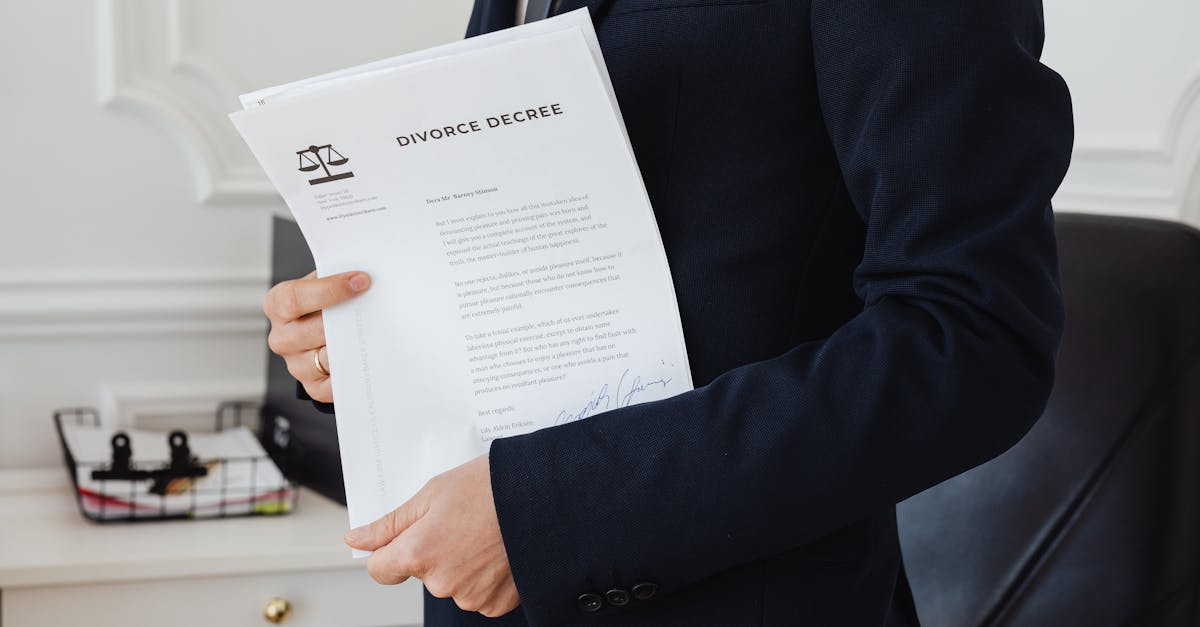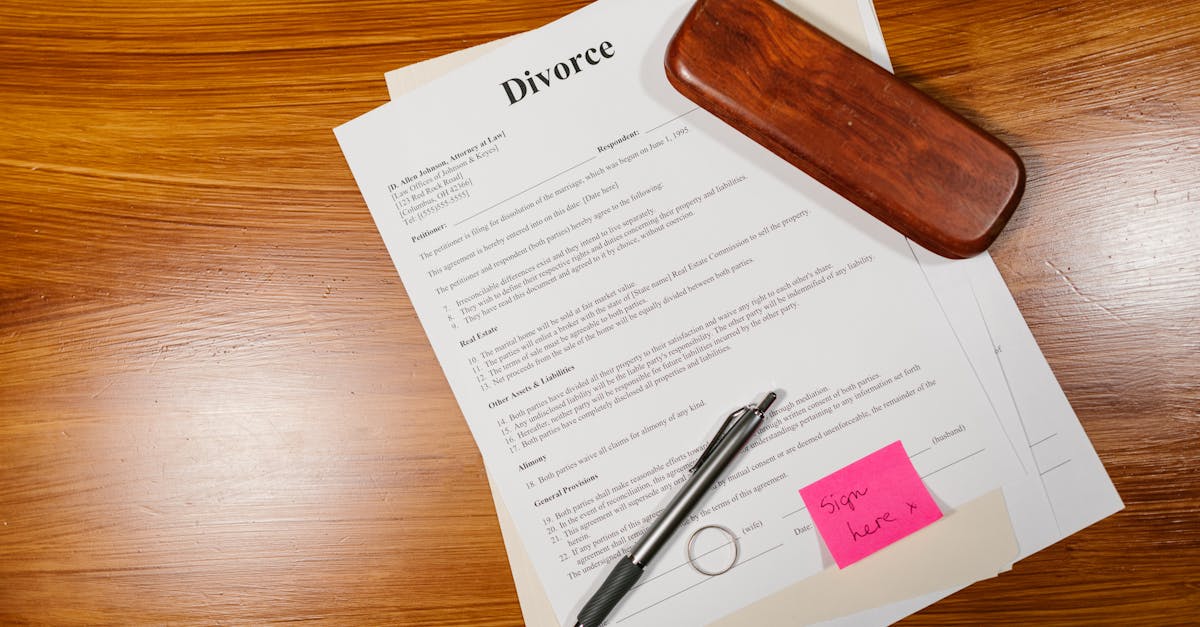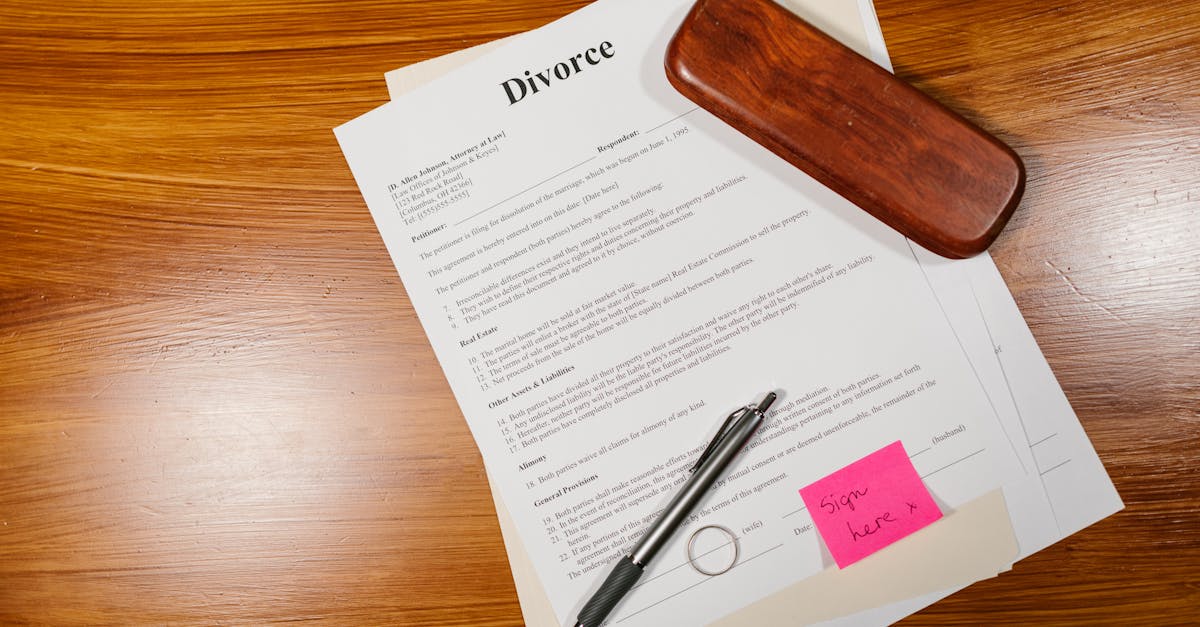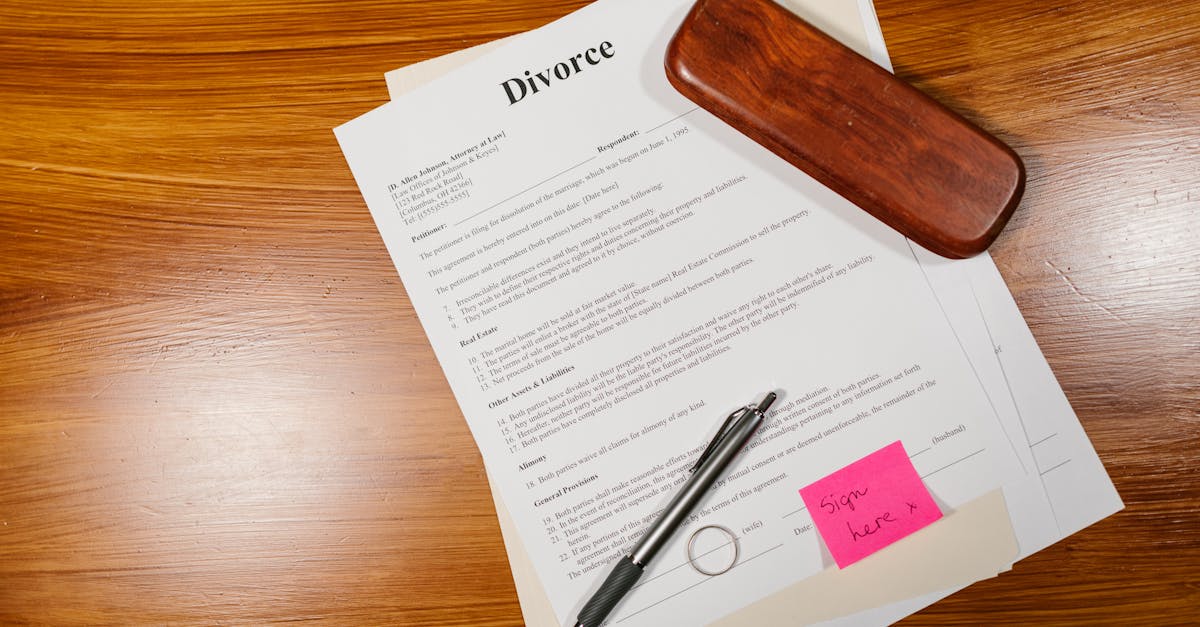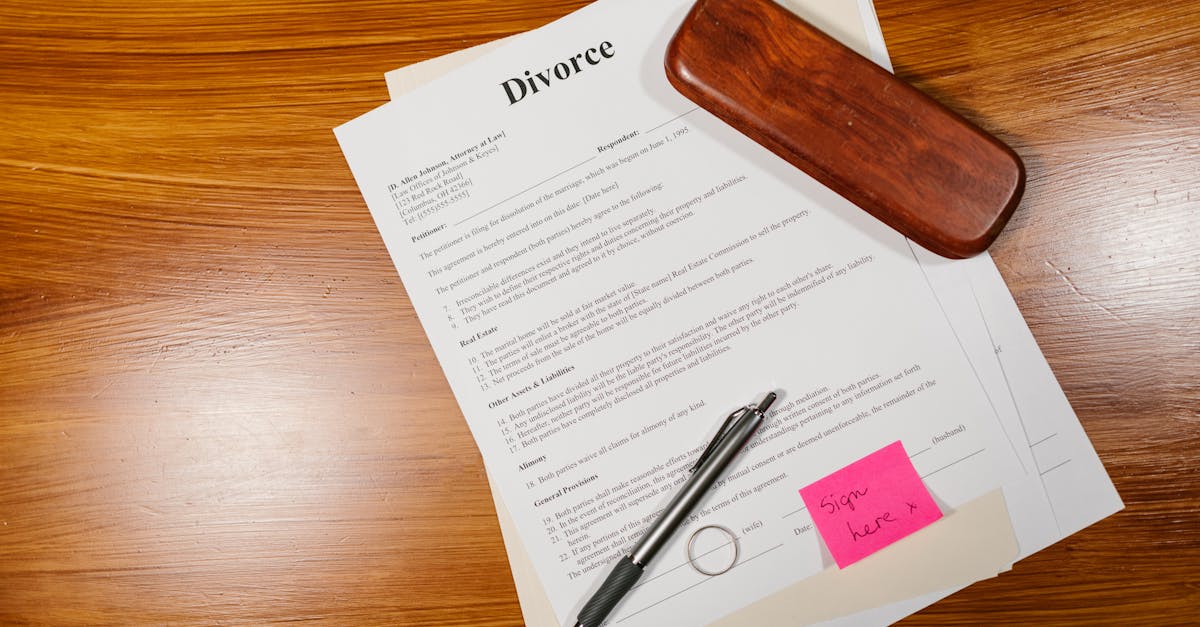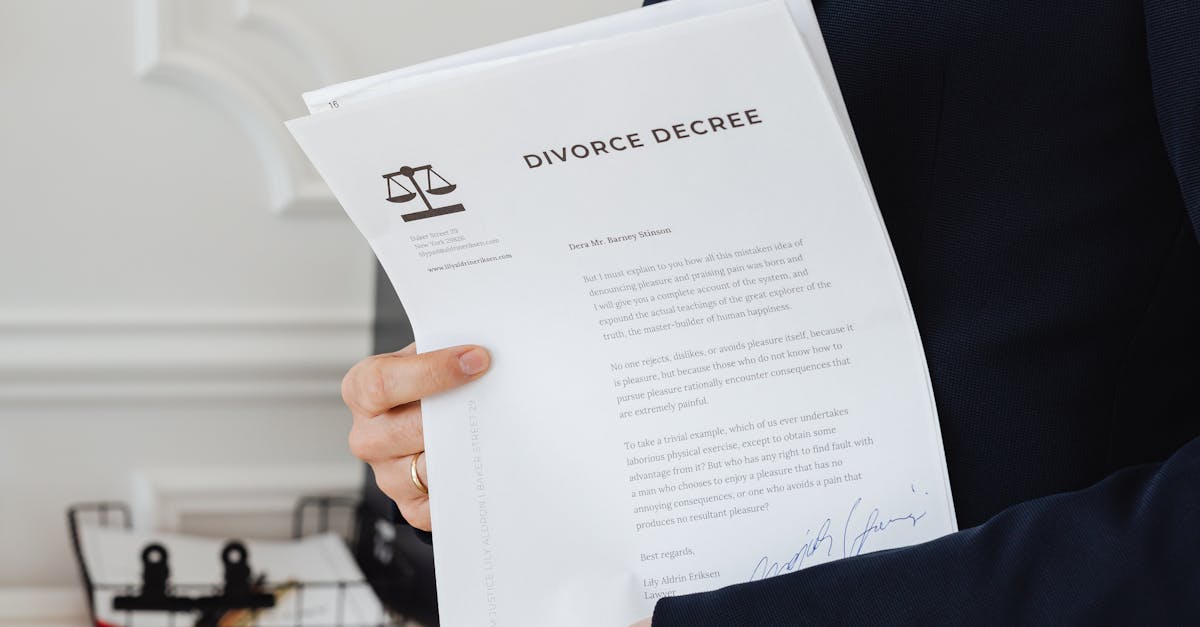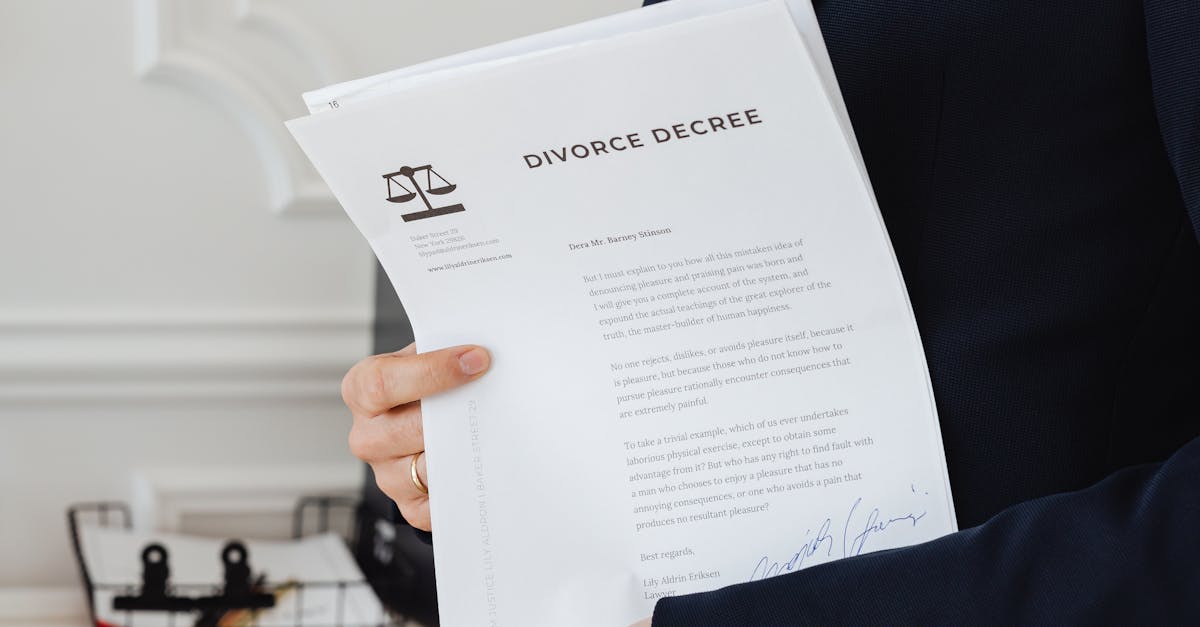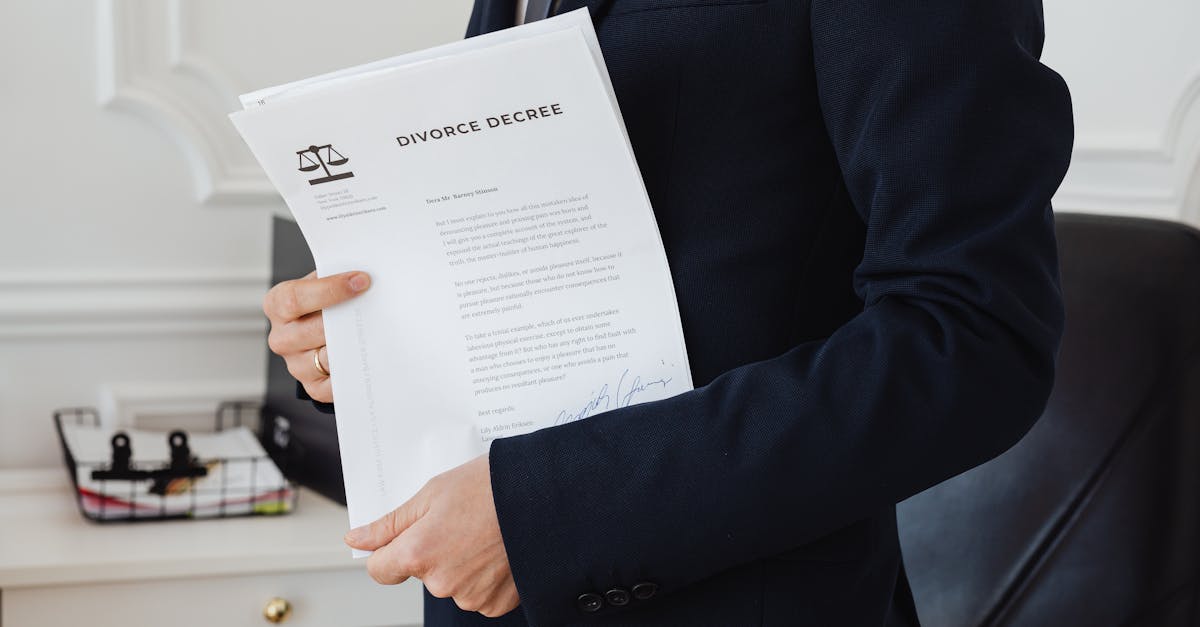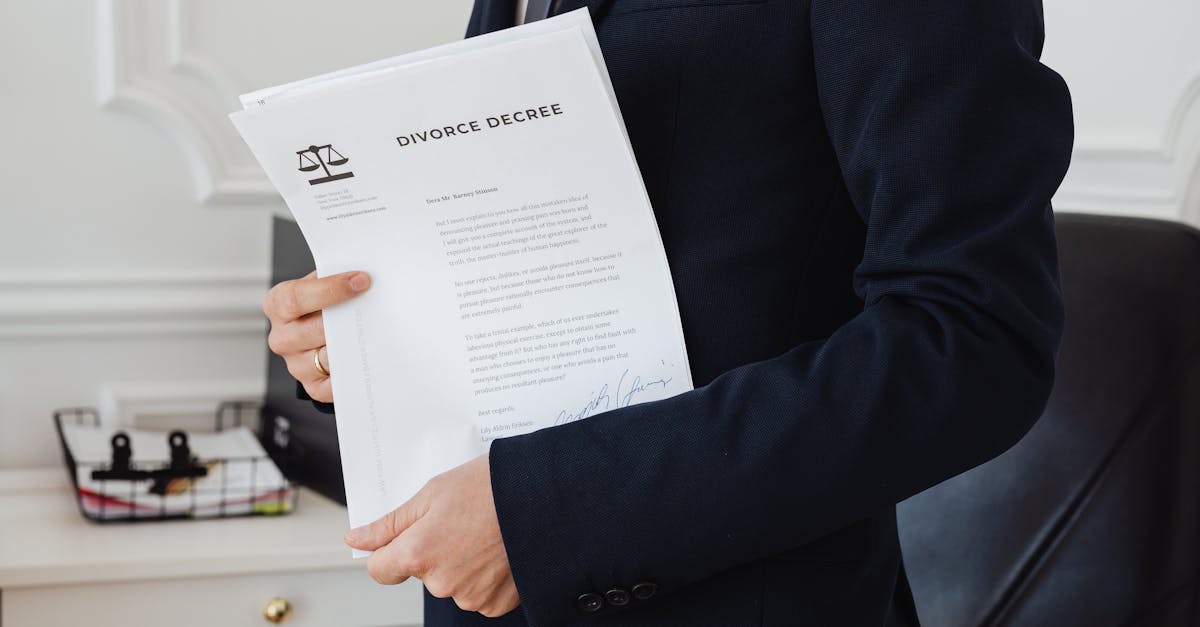Understanding Unfair Dismissal Claims and How to Claim Unfair Dismissal in the UK
Key Takeaways
- Comprehending unjust termination is crucial for employees.
- Various categories of terminations exist, each with different implications.
- The procedure for claiming unfair termination involves specific steps and requirements.
- Illustrations of unjust termination can help identify valid cases.
- Compensation options are available for those who experience unfair termination.
- Claims for constructive termination reflect situations where conditions force an employee to resign.
Understanding Unfair Dismissal
Unfair dismissal refers to the termination of employment in a manner that breaches the employee's rights, leading to a potential unfair dismissal claim. Employees who feel they have been unfairly dismissed may seek redress through employment tribunals, where they can argue that their dismissal was not justified. Common scenarios include termination due to discrimination or without following the correct procedures, which can also be classified as wrongful dismissal. Constructive dismissal occurs when employees are forced to resign due to their employer's actions, effectively leaving them with no viable option but to quit. Distinguishing between fair dismissal and unfair dismissals can be complex, highlighting the importance of understanding legal protections for claimants facing such situations.
Definition of Unfair Dismissal
Unfair dismissal occurs when an employee's termination from their job lacks a fair and just cause. This situation often arises in cases of harassment or discriminatory practices by the employer. Employees who feel wrongfully terminated may file an unfair dismissal claim, seeking redress through legal avenues. Employment law protects individuals from such unjust treatment, allowing them to bring their case before tribunals for judgement.
An unfair dismissal claim can result in various outcomes, including damages awarded to the affected employee. Employers must navigate the complexities of employment law carefully to avoid potential disputes. Seeking legal advice is crucial for both employees and employers involved in such matters, as the tribunal's decision can significantly impact the workplace relationship. Understanding the legal framework surrounding unfair dismissal helps both parties to ensure fair treatment in all employment situations.
| Type of Unfair Dismissal | Description | Examples |
|---|---|---|
| Constructive Dismissal | Occurs when an employee resigns due to an employer's behavior that significantly alters their work conditions. | Toxic work environment, harassment, or significant changes to job responsibilities. |
| Discrimination | Termination based on race, gender, age, or other protected characteristics, violating equal employment opportunity laws. | Firing an employee due to their pregnancy or because of their ethnic background. |
| Lack of Fair Procedure | When an employee is dismissed without a transparent process or adequate investigation into allegations against them. | Termination without a formal performance review or without giving the employee an opportunity to respond to complaints. |
| Retaliatory Dismissal | Termination that occurs as a reaction to an employee exercising their legal rights, such as filing a complaint or whistleblowing. | Firing an employee after they report unsafe working conditions. |
Key Differences Between Fair Dismissal and Unfair Dismissal
Fair dismissal occurs when an employer has a valid reason, such as employee misconduct or redundancy, supported by evidence and procedure. Employees who believe they have faced unfair treatment can pursue an unfair dismissal claim under their legal rights. This claim can arise from breaches of the employment contract, including issues like disability discrimination or fraud. Employers must follow proper disciplinary procedures to avoid disputes that may lead to arbitration or compensation claims from employees.
Unfair dismissal, on the other hand, happens when an employee is terminated without a fair reason or due process, which can result in a significant breach of contract. A common issue in these cases is the lack of appropriate notice, sometimes referred to as pay in lieu of notice, which employees may be entitled to. Distinguishing between fair and unfair dismissal is crucial for both employers and employees, as misunderstandings can lead to lengthy disputes and financial repercussions related to compensation claims.
Types of Dismissals
Dismissals in the workplace can take various forms, each with distinct implications for employees. An unfair dismissal claim may arise when a complainant faces job termination due to unjust reasons, such as bullying or unsafe working conditions. In cases where an employee is dismissed for whistleblowing or gross misconduct, the complexity of the dismissal can lead to proceedings in an industrial tribunal or court, overseen by a judge. Understanding one's legal rights is crucial, as these situations may require the involvement of advisory services and conciliation and arbitration service to resolve disputes. Employees must be aware of the nuances of different types of dismissals to effectively navigate the claims process.
Overview of Wrongful Dismissal
Wrongful dismissal occurs when an employee is terminated from their job in violation of their employment contract or the unfair dismissal rules. This situation can arise from various factors including a breach of the Employment Rights Act 1996 or an error in the process leading to termination. Employees may consider submitting an unfair dismissal claim if they face circumstances like being a whistleblower or being pressured into accepting voluntary redundancy. Common mistakes in the dismissal process can create grounds for a claim unfair dismissal, highlighting the importance of understanding employment rights.
Employees are protected under specific laws that govern the way dismissals should be handled. An unfair dismissal claim can be based on factors such as being dismissed without proper notice or for reasons that don’t align with the terms of employment contracted. Those navigating through an unfair dismissal situation should be aware of their rights and the legal framework surrounding such claims. Seeking advice from Hibberts legal professionals experienced in wrongful dismissal can help clarify the processes involved and improve chances of a successful outcome.
Automatic Unfair Dismissal Explained
Automatic unfair dismissal occurs when an employee is dismissed for a reason that is deemed inherently unjust under the law. This can include being fired for asserting certain legal rights, such as taking maternity leave or reporting workplace discrimination. Such cases fall outside the ordinary dismissal rules, as they violate specific regulations that protect employees. An unfair dismissal claim can arise from these circumstances, leading to an unfair dismissal case where the employee seeks unfair dismissal compensation.
Unlike ordinary unfair dismissal, where the employer must provide a valid reason for termination, automatic unfair dismissal does not require the employee to demonstrate that the dismissal was unfair in the conventional sense. Instead, the focus is on the specific protected characteristics or actions that led to the dismissal. Employees facing automatic unfair dismissal have robust unfair dismissal protection, allowing them to pursue a constructive dismissal claim if their working conditions become intolerable due to the employer's actions.
Unfair Dismissal Claims Process
An unfair dismissal claim arises when an employee believes that their employer has dismissed them for an unfair reason, which could include discrimination or a breach of the dismissal procedure agreement. Employees facing immediate dismissal or those subjected to summary dismissal may feel particularly vulnerable to unfair treatment. To initiate a claim, it is essential to document the circumstances surrounding the dismissal, such as noting any instances of discrimination that may have occurred. Understanding the dismissal proceeds and how dismissal compensation pay-outs are calculated can significantly impact the outcome of the claim. It is crucial for employees to be well-informed about their rights and the specific steps to take when their employer dismisses them unjustly.
How to Claim Unfair Dismissal
Claiming unfair dismissal involves a structured process that begins with assessing whether you have a valid claim. Gather evidence that supports your position, such as your employment contract, correspondence regarding your dismissal, and records of any harassment claims, if applicable. It's important to outline the reasons you believe your dismissal was unfair, especially in cases of discrimination. An initial claim must be lodged with the relevant tribunal within the specified time limit to ensure your case is considered.
Once your initial claim is submitted, be prepared to provide further documentation to support your case. This may include formal complaints made during your employment or details of any discussions held with HR regarding your dismissal. A tribunal will review the facts and evidence presented to determine if your situation qualifies as an unfair dismissal claim. If the tribunal dismisses your case, you may still have options to appeal or explore other avenues, depending on the circumstances of your contract claim and previous claims.
| Step | Description | Important Notes |
|---|---|---|
| 1. Assess Your Claim | Determine if you have a valid reason for claiming unfair dismissal. | Evidence needed includes employment contract and dismissal correspondence. |
| 2. Lodge Initial Claim | File your claim with the relevant tribunal within the specified time limit. | Make sure to meet deadlines to avoid losing your right to claim. |
| 3. Provide Documentation | Submit supporting documents and evidence for your case. | This may include formal complaints or HR discussions. |
| 4. Tribunal Review | Your case will be reviewed by a tribunal. | Be prepared to explain why your dismissal was unfair. |
| 5. Appeal Options | If dismissed, explore options for appeal or alternate claims. | Check the specifics of your situation regarding appeals. |
Steps to Take Before Making a Claim
Before asserting an unfair dismissal claim, it is crucial to gather all relevant evidence related to your employment termination. This includes any correspondence with your employer, records of your performance, and notes on any allegations made against you. Understanding the circumstances surrounding your dismissal will help clarify potential disputes regarding whether your employer acted fairly. A successful claim often hinges on the ability to demonstrate that the termination resulted in detriment without just cause, while also considering any exceptions that might apply.
It's also advisable to review the tribunal rules that govern unfair dismissal claims. Familiarising yourself with these regulations can prepare you for the process ahead and increase the likelihood of a genuine claim being upheld. You should document any conversations or interactions surrounding your dismissal, as these can serve as critical evidence. Taking these preliminary steps can set the foundation for a strong case, should you decide to move forward with a claim.
Examples of Unfair Dismissal
Unfair dismissal claims arise from situations where employees believe their termination occurred for unlawful reasons. Examples may involve a discriminatory reason, such as dismissing an employee due to age, gender, or disability, which can lead to a separate victimisation claim under the Employment Rights Act. In employment law cases, it is essential to demonstrate that a reasonable employer would not have dismissed the employee under similar circumstances. Cases may be taken to a tribunal court, where tribunal evidence will be critical in establishing the nature of the dispute and supporting the unfair dismissal claim. Employees should be aware of their employment rights and the specific scenarios that could qualify as unfair dismissal to ensure they can effectively manage their claims.
- An employee terminated shortly after returning from maternity leave.
- Dismissal of an employee who raised health and safety concerns.
- An employee fired for being frequently absent due to a recognised medical condition.
- Termination based on a worker's involvement in a trade union.
- Dismissing an employee for taking parental leave.
- An employee let go after reporting discrimination or harassment.
- Termination following a whistleblowing disclosure about illegal practices in the workplace.
Common Scenarios Leading to Unfair Dismissal Claims
Employees may face an unfair dismissal claim in cases where their employer implements unreasonable changes to their role or working conditions. For instance, if an employee is subjected to a significant demotion or forced to take on responsibilities that compromise their health and safety, they could argue that they were unjustly treated. In such situations, seeking legal advice can be crucial. If the issue escalates to a tribunal hearing, the employee can appeal against what may be perceived as a discriminatory action by the employer. Potential discriminatory reasons, such as race or gender, could further strengthen this claim.
Another scenario involves unlawful deductions from wages. If an employer fails to pay an employee correctly or makes wrongful deductions without justification, it may lead to an unfair dismissal claim. Limited exceptions exist for such actions, but employees should be aware of their rights. In cases where a safety complaint is raised, and the employer does not take appropriate action, employees may find grounds for a claim if they face dismissal. This situation highlights the importance of documenting any grievances and understanding the available legal channels, as they can significantly affect the outcome of any subsequent tribunal hearing.
Distinguishing Between Fair and Unfair Dismissal Examples
Fair dismissal often hinges on a legal reason that justifies the termination, such as severe misconduct or consistent poor performance. An example might include an employee who repeatedly fails to adhere to workplace protocols after receiving warnings. In contrast, an unfair dismissal claim could arise if an employee is terminated due to reasons such as disability discrimination or unpaid wages. Such cases highlight the importance of understanding employee rights and the grounds for filing an appeal level case in a tribunal.
The distinction between fair and unfair dismissal can become blurred in situations involving misconduct or allegations without sufficient evidence. For instance, if an employee is dismissed based on unfounded assertions or vague accusations without concrete proof, this may lead to a potential unfair dismissal claim. Legal complexities often necessitate appropriate counsel to navigate the tribunal process effectively, especially in scenarios where compensation for disability discrimination is sought or an appeal is needed. Recognising these nuances is crucial for both employers and employees.
Compensation for Unfair Dismissal
Compensation in the context of an unfair dismissal claim can vary significantly based on several legal reasons and the specific circumstances surrounding the case. The amount of compensation awarded often reflects the financial impact of early termination on the claimant, including any termination payment due. Employers are expected to uphold their legal obligations, which may include providing proper documentation such as verbal warnings prior to dismissal. Should the matter escalate to legal action, claimants might also need to consider tribunal fees and other associated costs. Understanding the legal term associated with compensation is crucial, as it can influence the overall outcome of an unfair dismissal claim. Resources like free employment law services can provide vital information and support for those navigating this process.
What to Expect in Unfair Dismissal Compensation
Compensation for an unfair dismissal claim typically reflects the financial impact of the termination on the employee. Depending on the circumstances, such as whether the dismissal occurred following a disciplinary investigation or as a result of a redundancy situation, the amount awarded can vary significantly. If the case involves retaliation or lacks adherence to proper disciplinary procedures, the tribunal considers these factors when determining compensation. The outcome of any disciplinary hearing and the subsequent official termination letter also play a crucial role in assessing fairness during the claim process.
Employees may receive compensation for lost wages, emotional distress, and future earning potential as part of an unfair dismissal claim. The tribunal carefully evaluates the evidence presented regarding disciplinary hearing outcomes and the overall application of fairness in the procedures employers follow. In cases of redundancy, any failure to adhere to proper protocols can further influence the compensation awarded. Understanding these aspects helps employees navigate the complexities of claiming compensation effectively.
How Compensation is Determined in Unfair Dismissal Cases
The compensation for an unfair dismissal claim is determined based on various factors assessed during the tribunal process. If the tribunal finds that an employer has committed infringements of employment rights, compensation pay-outs may be awarded to the claimant. The amount can vary significantly depending on the circumstances of each case, including the length of employment and any contractual losses incurred due to the dismissal. The tribunal's decision may also consider how the employer spoke to the employee prior to the dismissal and if any mistakes were made in the process.
In many cases, the tribunal will also evaluate whether the employer acted in accordance with the Equality Act and other relevant legislation. This includes reviewing the fairness of the dismissal in relation to the case presented. A comprehensive understanding of these factors is crucial for claimants navigating the arbitration service as they seek resolution for their unfair dismissal claim. Ultimately, the details and evidence provided during the tribunal process play a pivotal role in determining appropriate compensation.
Constructive Dismissal Claims
A constructive dismissal claim arises when an employee feels forced to resign due to their current employer's inappropriate behaviour, breaching the terms of their employment contract. This situation often occurs under circumstances that severely undermine the employee's employment status, such as a lack of support during an undertaking jury service or the removal of contractual benefits. Employees have the right to seek legal protection if they can demonstrate that their employer's actions were so intolerable that resignation was the only reasonable option available. To succeed, one must provide evidence that the current employer created a hostile work environment, adhering to the rule that an unfair dismissal claim must prove significant distress. If the claim is rejected, there may be grounds for an appeal meeting if tribunal needs are not appropriately met. Understanding the requirements for a constructive dismissal claim is essential for those navigating these complex legal waters with the same employer.
- Employees should document all incidents that lead to their resignation to support their claim.
- It is advisable to raise any grievances formally with the employer before resigning.
- Seeking legal advice prior to making a claim can help clarify rights and potential outcomes.
- Timing of the resignation is crucial; acting promptly after the incident can strengthen the claim.
- Employees should ensure they have a clear understanding of their employment contract and the specific terms breached.
- Gathering witness statements or emails can provide useful evidence in the case of a tribunal.
- Constructive dismissal claims typically have a time limit, so prompt action is necessary.
Understanding Constructive Dismissal
Constructive dismissal occurs when an employee resigns due to their employer's conduct, making their working environment intolerable. This situation prompts the employee to believe they have no choice but to leave, which can lead to an unfair dismissal claim. Employees have rights that protect them in these scenarios, requiring a fair procedure to be followed before making such a decision. If an employee feels pressured to resign, they should document instances that may support their claim, potentially leading to a settlement or pay-out.
It is essential for employees considering an unfair dismissal claim to understand the implications of their decision to resign. Seeking advice from a union or legal counsel can provide clarity on rights and the steps needed to apply for such a claim. Employees on a fixed-term contract may also have specific considerations to address when navigating this process. Ensuring that a claim is well-founded and substantiated will significantly affect the chances of receiving appropriate compensation.
Requirements for Submitting a Constructive Dismissal Claim
Submitting a constructive dismissal claim requires a clear demonstration of an employee’s resignation due to their employer's conduct. The staff member must have experienced a fundamental breach of contract, which compelled them to leave. For example, if an employee is subjected to harassment or significant changes in their role without a proper discussion, they may have grounds for an unfair dismissal claim. Seeking legal advice early in the process is crucial, as it provides clarity on potential fees and the likelihood of receiving interim relief while the claim is being processed.
To successfully navigate a constructive dismissal claim, individuals should gather evidence of the employer's conduct leading to their resignation. This could include emails, witness statements, or formal complaints filed with the HR department. It is advisable to document any attempts made to resolve the issues before leaving, as this can strengthen the claim. Potential claimants should also be aware of the time limits for submitting their unfair dismissal claim, ensuring they prepare adequately to avoid missing out on potential relief and compensation for lost pay.
Conclusion
Understanding the intricate landscape of unfair dismissal is crucial for both employees and employers. An unfair dismissal claim under the Employment Rights Act 1996 hinges on whether the termination aligns with established unfair dismissal rules. Employees often find themselves in an unfair dismissal situation due to common mistakes like failing to adhere to their employment contracted duties or being victims of discrimination, especially when acting as a whistleblower. Knowledge about the implications of voluntary redundancy can also influence the claims process. Navigating an unfair dismissal claim requires clarity on the legal definitions and rights to ensure that those affected can effectively claim unfair dismissal and protect their employment rights.
FAQS
What is my dismissal right if I believe I have been unfairly treated in my employment?
If you believe that your dismissal right has been violated, you may need to explore options through the advisory, conciliation and arbitration service, especially in unfair dismissal cases. If the unfair treatment relates to a discrimination claim or involves whistleblowers, it may also lead to tribunal claims. It's important to review your contract of employment, as well as understand the conditions under which you were dismissed, as this could impact potential compensations or employee appeals. If you feel your employer didn’t follow the statutory employment guidelines, seeking advice can help clarify your options.
How can I seek advice on contracts or service dismissal if I have faced discrimination cases whilst my employer doesn’t address my concerns?
If you believe you are a claimant in a discrimination case, particularly regarding disability discrimination compensation or if you have been made redundant, it is essential to seek advice on your options. You may want to consult a legal professional who can provide guidance on your situation, especially if your employer does not speak to you about the issues raised. Some advisors may work on a fee basis, enabling you to manage costs while understanding your rights.
How can I see advice on contracts or service dismissal when my employer doesn’t address my discrimination cases?
If you are facing issues with your employer regarding discrimination cases and service dismissal, it is advisable to seek guidance from legal experts or employment advisors. They can offer support on navigating your rights as a claimant, particularly if your employer doesn’t speak directly to your concerns. Engaging with organisations that specialise in employment law would also help you understand your position better.
How can I see advice on contracts if my employer does not speak to me about my unfair dismissal claim whilst I navigate the process as a claimant?
If you need to see advice on contracts during your unfair dismissal claim, it’s important to consult with a legal expert or a professional organisation that handles such matters. They can provide guidance on your rights and the necessary steps to take if your employer does not speak to you about your concerns, whilst ensuring you understand your position as a claimant.
What steps can I take to ensure my employer speaks to me whilst I navigate my unfair dismissal claim as a claimant?
To ensure your employer speaks to you whilst you navigate your unfair dismissal claim as a claimant, it is important to document all your communications, express your concerns formally in writing, and consider seeking legal advice to advocate on your behalf during the process.
What should I do if my employer is unresponsive whilst I act as a claimant during my unfair dismissal claim?
If your employer is unresponsive whilst you are acting as a claimant in your unfair dismissal claim, it's important to document all attempts to communicate with them. You may wish to seek legal advice or contact an employment tribunal to understand your rights and options for resolving the situation.
What should I consider if I need guidance on my rights whilst acting as a claimant in an unfair dismissal situation?
When seeking guidance on your rights whilst acting as a claimant in an unfair dismissal situation, it's important to familiarize yourself with employment law and your specific circumstances. You may want to consult with legal professionals or advisory services that specialise in employment issues to better understand your position in this claim process.
What are my options if I need to take action whilst I navigate my unfair dismissal claim as a claimant?
If you find yourself needing to take action whilst a claimant in your unfair dismissal claim, consider seeking legal advice to understand your rights and options. It's important to document all communications with your employer whilst you proceed with your claim, as this could assist in establishing the context of your situation. You may also want to reach out to relevant employment support organisations for guidance during this process.
What should I keep in mind about my responsibilities whilst I navigate my unfair dismissal claim as a claimant?
It's essential to be aware of your responsibilities whilst engaging with your unfair dismissal claim as a claimant. You should ensure that you gather all relevant evidence, respond promptly to any correspondence, and adhere to the timelines set by employment tribunals. This diligence can help strengthen your case and demonstrate your commitment to resolving the matter.
What support is available for employees whilst they are acting as a claimant in their unfair dismissal claim?
Employees can seek support from various legal advisors and employment rights organisations whilst they are acting as a claimant in their unfair dismissal claim. These resources can provide guidance on legal rights, help in preparing necessary documentation, and offer advice on the claim process to ensure that the claimant's interests are protected.



















